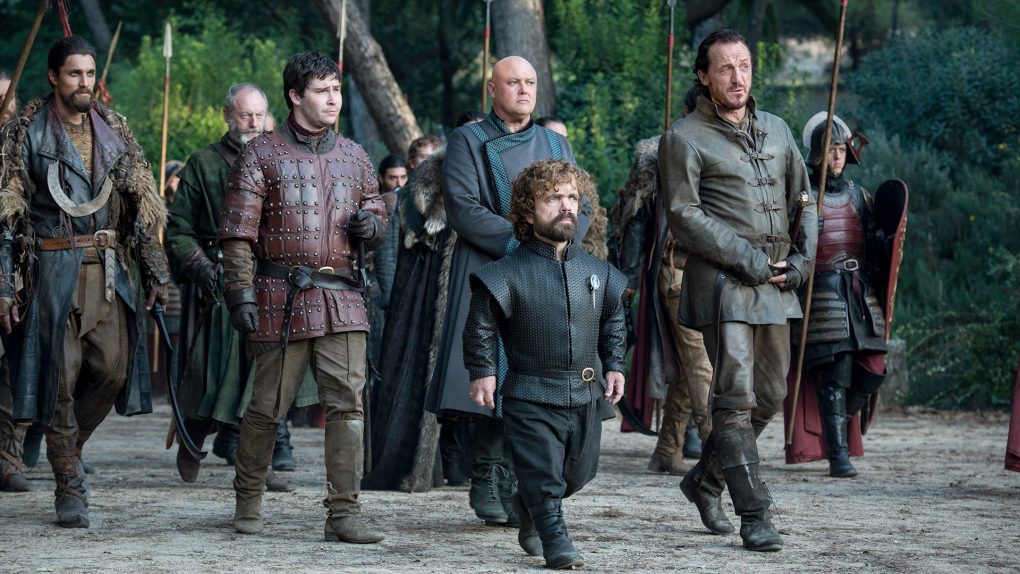For a TV show to get so big that it’s eventually able to command 30 million viewers for single episodes; when military-level secrecy has to be brought to the show’s production because of the intensity of fan interest; and when it’s so deeply embedded itself into the pop culture lexicon that even the leader of the free world is tweeting out memes from it, that’s when you know you’ve got something special. A pop culture phenomenon that will endure.
Game of Thrones has certainly been a game-changer for HBO over its first seven seasons — but with the eighth and final run of episodes set for next year, a logical question to ask is what happens to HBO once it’s over? To be more specific, how much of a financial hit is HBO set to absorb once we all say goodbye to Westeros?
The answer might surprise you. According to a Motley Fool analysis, there’s a good chance the end of GoT won’t have much of an impact on HBO’s bottom line, which is driven by subscriptions, not how much its content has been viewed.
“Even if we credit the show with growing HBO’s subscriber numbers, it doesn’t necessarily follow that losing it will reverse the process in a meaningful way,” the analysis explains. “HBO’s own post-Sopranos experience suggests that it can survive the departure of a top-rated show and continue to grow. Game of Thrones is more popular than The Sopranos was, but both were the top shows of their time.
“This is not to say that Game of Thrones isn’t important for HBO’s reputation and overall success, but rather to say that in a pure dollars-and-cents calculation, Game of Thrones‘ departure doesn’t look like a financial disaster for HBO.”
Going back to that mention of The Sopranos, for a moment: After it ended in 2007, revenue at HBO’s parent actually rose the following year by 8 percent. Why? Plenty of other shows to keep viewers hooked, like Boardwalk Empire and True Blood (neither of which, of course, was the next Sopranos, which would have been a fool’s errand to try and find). To borrow a quote from GoT’s Littlefinger — chaos, or in this case uncertainty about the future — it’s not a pit, it’s a ladder. And HBO has shown us it’s been perfectly capable of scaling that ladder before.
To that end, the folks over at Winter is Coming note that HBO has been diligently laying down a foundation that paves the way for a post-GoT future at the network. “From a business perspective,” the site notes, “having alternatives to Game of Thrones will be key to holding on to subscribes after the show wraps. And HBO, to its credit, is feverishly preparing.
“Watchmen will be a continuation/reimagining of Alan Moore’s seminal graphic novel, Demimonde is ‘an epic and intimate sci-fi fantasy drama’ from super-producer J.J. Abrams, The Nevers takes place in a wholly original fictional world from Avengers director Joss Whedon, and Lovecraft Country is a horror drama from Get Out director Jordan Peele. And of course there’s HBO’s ace in the hole: a proper prequel to Game of Thrones set thousands of years before the events of the main series, with ideas for other spinoffs in its back pocket.”
The silver lining in this cloud for HBO is that it can now re-direct some of the gobs of money it was throwing at GoT (for the final season alone, a whopping $15 million per episode) to other projects. That’s just one of the benefits of the most expensive TV show of all time rolling its credits for the last time.
Short-term, according to the Motley Fool analysis, HBO will be fine. Longer-term? That’s a slightly more interesting question. Amazon, Netflix and other streaming giants are hungry for their own GoT-level blockbuster and spending big to try and find it. In fact, you could almost look at the end of GoT as a kind of mad scramble for power among streaming giants, similar to the power vacuum in the Seven Kingdoms. The houses of Amazon, HBO and all the rest, jockeying to see who will ultimately claim their place on the iron throne of streaming supremacy.








